Stéphane Bonnevay
Temporal Multinomial Mixture for Instance-Oriented Evolutionary Clustering
Jan 11, 2016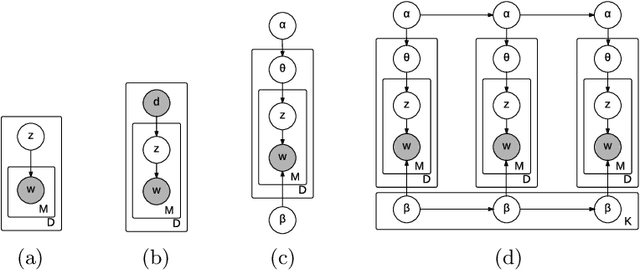
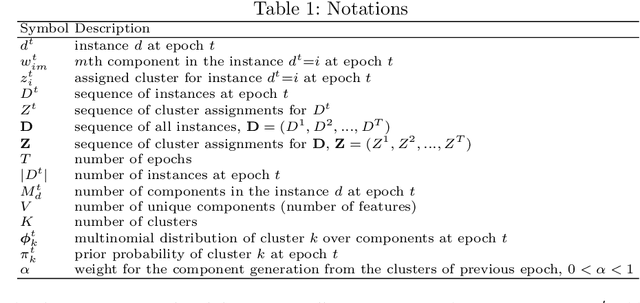
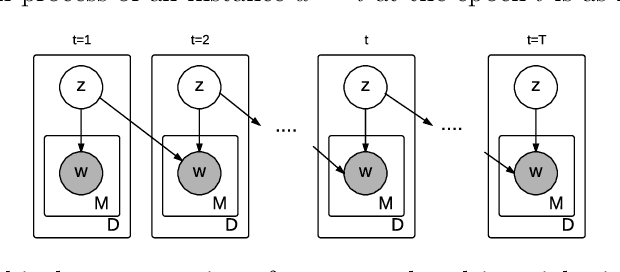

Abstract:Evolutionary clustering aims at capturing the temporal evolution of clusters. This issue is particularly important in the context of social media data that are naturally temporally driven. In this paper, we propose a new probabilistic model-based evolutionary clustering technique. The Temporal Multinomial Mixture (TMM) is an extension of classical mixture model that optimizes feature co-occurrences in the trade-off with temporal smoothness. Our model is evaluated for two recent case studies on opinion aggregation over time. We compare four different probabilistic clustering models and we show the superiority of our proposal in the task of instance-oriented clustering.
Opinion mining from twitter data using evolutionary multinomial mixture models
Sep 24, 2015

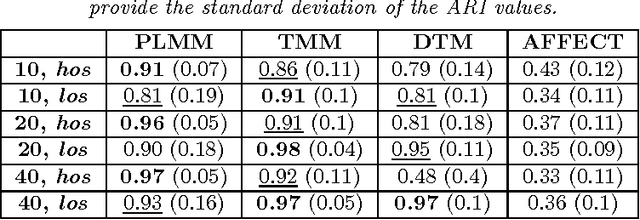
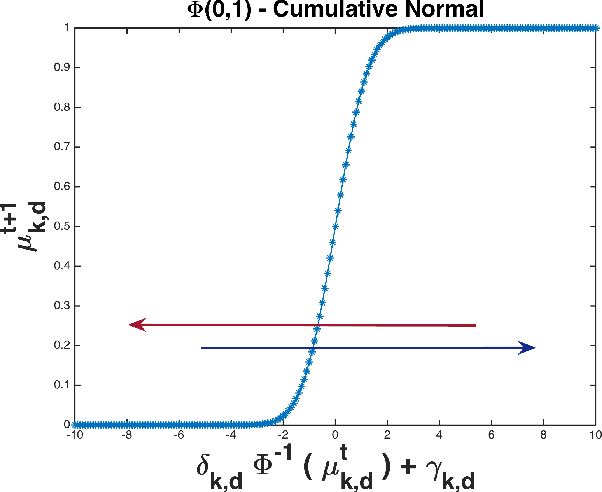
Abstract:Image of an entity can be defined as a structured and dynamic representation which can be extracted from the opinions of a group of users or population. Automatic extraction of such an image has certain importance in political science and sociology related studies, e.g., when an extended inquiry from large-scale data is required. We study the images of two politically significant entities of France. These images are constructed by analyzing the opinions collected from a well known social media called Twitter. Our goal is to build a system which can be used to automatically extract the image of entities over time. In this paper, we propose a novel evolutionary clustering method based on the parametric link among Multinomial mixture models. First we propose the formulation of a generalized model that establishes parametric links among the Multinomial distributions. Afterward, we follow a model-based clustering approach to explore different parametric sub-models and select the best model. For the experiments, first we use synthetic temporal data. Next, we apply the method to analyze the annotated social media data. Results show that the proposed method is better than the state-of-the-art based on the common evaluation metrics. Additionally, our method can provide interpretation about the temporal evolution of the clusters.
Simultaneous Clustering and Model Selection for Multinomial Distribution: A Comparative Study
Sep 06, 2015
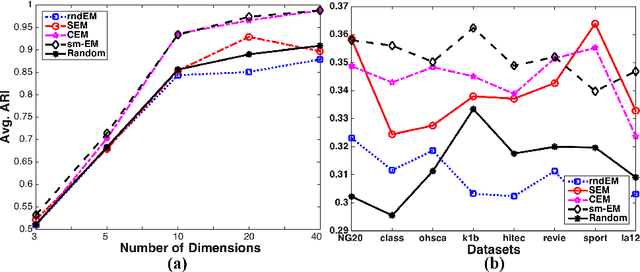
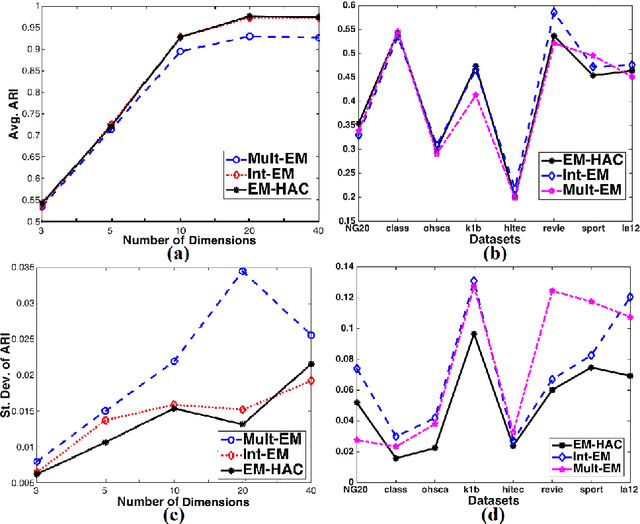

Abstract:In this paper, we study different discrete data clustering methods, which use the Model-Based Clustering (MBC) framework with the Multinomial distribution. Our study comprises several relevant issues, such as initialization, model estimation and model selection. Additionally, we propose a novel MBC method by efficiently combining the partitional and hierarchical clustering techniques. We conduct experiments on both synthetic and real data and evaluate the methods using accuracy, stability and computation time. Our study identifies appropriate strategies to be used for discrete data analysis with the MBC methods. Moreover, our proposed method is very competitive w.r.t. clustering accuracy and better w.r.t. stability and computation time.
 Add to Chrome
Add to Chrome Add to Firefox
Add to Firefox Add to Edge
Add to Edge